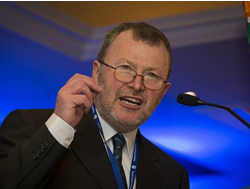IRELAND
 Unions representing Ireland’s Public Servants say they are not happy with the Government’s plan to end the two-tier pay system and may yet recommend industrial action.
Unions representing Ireland’s Public Servants say they are not happy with the Government’s plan to end the two-tier pay system and may yet recommend industrial action.
Pay rises worth €3,300 (A$5,400) kick in from next March for workers who were employed on lower pay rates over the past seven years under austerity-era cost-cutting measures.
However, the €190 million (A$308 million) deal has not settled all grievances on the pay inequality front and teachers, doctors and nurses have expressed anger.
The deal means those who have been on lower pay rates since 2011 will gradually catch up with their longer-serving colleagues, although it will take until 2026 for some.
Some unions are angry that the deal does not include any back payment to make up for the thousands of euros workers lost since they were hired on pay rates that were 10 per cent lower than those of their colleagues.
The three teacher unions have previously warned of the possibility of strike action if their demands are not met in full.
Outstanding issues for the teachers relate to an allowance for qualifications, worth €1,236 (A$2,000) a year.
General Secretary of the Teachers’ Union of Ireland, John MacGabhann (pictured) said that while the deal “represents further movement, it won’t of itself deliver pay equality”.
The Irish Nurses and Midwives Organisation has warned that its members will consider industrial action if they do not get a substantial pay offer from the Government by a deadline later this month.
They want their pay to be on a par with professional staff including physiotherapists.
Minister for Finance, Paschal Donohoe said his purse strings were closed and he would not be giving out further sweeteners to PS employees.
The 60,000 new recruits to the Public Service since January 2011 include more than 16,000 teachers, nearly 5,000 special needs assistants and almost 10,000 nurses.
Dublin, 28 September 2018











